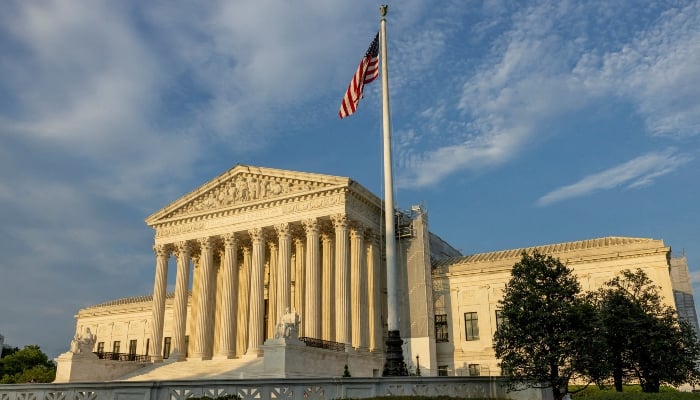A Defining Term for the Supreme Court
The Supreme Court’s fall term opens with a series of high-stakes cases that will test former President Donald Trump’s unprecedented expansion of executive authority. Central to this session is whether the Court will act as a constitutional check on the presidency or continue a pattern of validating Trump’s sweeping use of power. Legal scholars have noted that since his return to office, Trump has repeatedly secured victories from a conservative-dominated bench that includes three of his own appointees.
Among the most closely watched disputes are issues surrounding voting rights, transgender participation in sports, religious freedom, and, most significantly, Trump’s unilateral imposition of tariffs worth hundreds of billions of dollars.
The Tariffs Battle
The blockbuster case this term concerns Trump’s invocation of the International Emergency Economic Powers Act to levy massive tariffs without congressional approval. Lower courts have ruled that he lacked statutory authority, but the Supreme Court will now decide. Full oral arguments and briefing are scheduled for November 5, in contrast to the emergency “shadow docket” the Court has often used to decide cases tied to Trump.
“Hundreds of billions of dollars or more are at stake,” said University of Chicago law professor Curtis Bradley, emphasizing that a ruling against Trump could force the government to refund enormous sums collected under the tariffs.
The Role of the Shadow Docket
Much of Trump’s judicial success has come through the Court’s emergency docket, where decisions are issued quickly, often without oral arguments or detailed explanations. Critics have described this approach as undermining transparency and accountability. Samuel Bray, a University of Chicago law professor, likened it to the “legal equivalent of fast food.”
The Court’s three liberal justices have consistently voiced alarm at its reliance on this mechanism, while observers such as the ACLU’s Cecillia Wang argue that the justices have “bent over backwards” to accommodate Trump administration positions.
Voting Rights at Stake
On October 15, the justices will hear a challenge to Louisiana’s creation of a second Black-majority congressional district. Non-Black voters argue the move amounts to unconstitutional racial gerrymandering. Civil rights advocates warn that a ruling against the district would weaken a core provision of the Voting Rights Act, which has historically allowed majority-minority districts to address racial discrimination.
“The stakes are incredibly high,” said Sophia Lin Lakin of the ACLU. She emphasized that the ruling could shape not only Louisiana’s congressional map but also the future of redistricting battles nationwide.
Transgender Athlete Participation
Another case on the Court’s docket involves state laws in Idaho and West Virginia banning transgender girls from competing in girls’ sports. The outcome will carry significant implications for the rights of transgender students, testing the balance between state policies and federal protections against discrimination.
Religious Freedom Case
On November 10, the Court will hear arguments in a religious liberty case involving Damon Landor, a devout Rastafarian who had his dreadlocks forcibly cut while imprisoned in Louisiana. Landor is seeking monetary damages from individual state officials, claiming his rights were violated.
While the Court has historically resisted allowing damages claims against government officials, it has often sided with plaintiffs in religious freedom disputes. Legal experts suggest this case could reveal how far the justices are willing to extend protections in matters of faith.
